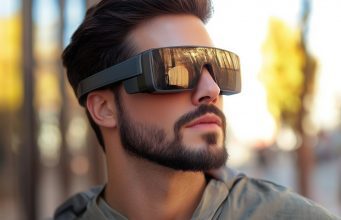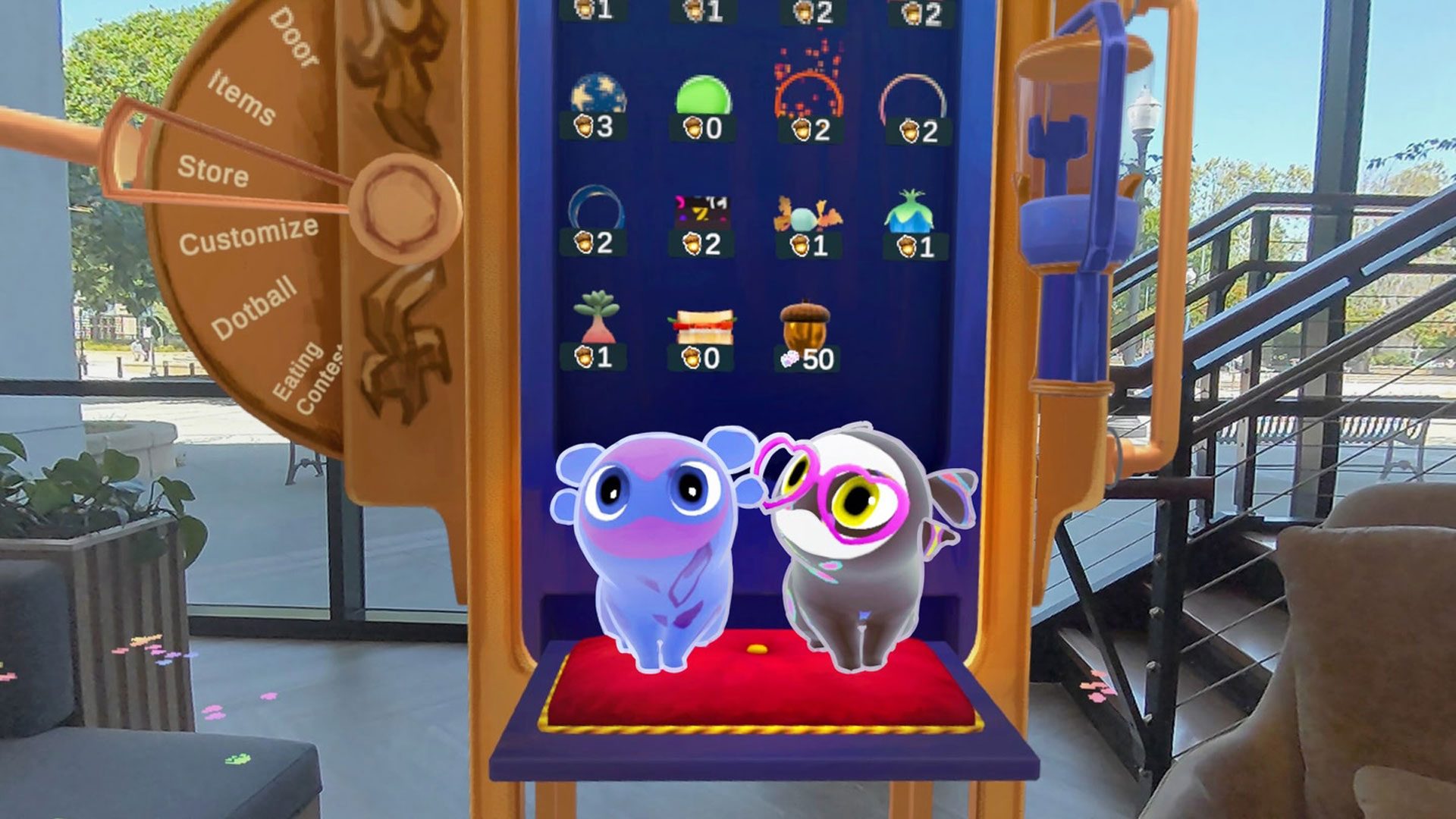I was asked recently for my thoughts on Meta’s Orion AR glasses, specifically whether or not such glasses stand a chance of becoming as big as (or replacing) the smartphones in the future.
I was asked for my thoughts recently for a Lifewire article about Meta’s Orion AR glasses and the future they may or may not point at. Only a small snippet of my overall response was used, and in a way that supported the article’s (reasonably) skeptical take on the future of AR glasses. However, considering my position is that I do indeed think AR glasses are the inevitable future of the smartphone—becoming the keystone of our daily digital lives—I think it’s worth sharing my full response on the record.
Q: Everyone owning smartphones is a once-ever glitch of the market, because they are subsidized, and replaced cellphones, which everyone had. Do you think most people will actually buy AR glasses?
Ben: I do believe, like the world’s largest tech companies (Meta, Apple, Google, etc) that AR glasses are the inevitable evolution of the smartphone over the long term. The ‘easy sell’ (if all the other pieces can be worked out) is to imagine if you could do everything you can do on your phone today, except on a magic screen that floats in front of you and can scale to any size you need at any time. So while you’re walking down the street it can be a little window showing you a message, but when you get home it can become a 100 foot cinema screen on your wall.
If you can build a device that can do this (and there’s reason to believe we can’t), then you’ve not only replaced your smartphone… but also replaced your TV. Think about all the other screens in your life beyond your phone and TV: your laptop screen, your desktop monitor, your smartwatch… all of these could be replaced with virtual screens that come from a single device that’s always with you. You can’t fit a 65″ 4K TV in your pocket… but if you’ve got glasses that can replicate that display, you can take it with you literally anywhere you go.
If you’ve had a chance to use Apple Vision Pro, you can clearly see that this idea is more than just a dream. The virtual screens created by Vision Pro are incredibly high quality. For most people, a virtual TV window in Vision Pro is higher quality than any TV they’re likely to own (not to mention it also works better than any 3DTV or 3D movie theater in existence because using one display for each eye creates a much better 3D image than the glasses you wear for a 3DTV or movie).
That’s all true, but Vision Pro is still huge! The tech industry’s current challenge is figuring out how to put the features, specs, and quality of Vision Pro into a pair of glasses that’s the size of Orion. It’s a massive technical challenge that will require multiple breakthroughs.
Again this is the long term vision—at least 10 years out. Orion represents a real step toward making this a reality, but it’s still very limited compared to the experience you get from a bulky headset like Vision Pro. Orion itself is not good enough to be the smartphone replacement, but future direction is clear.
So for those reasons, yes, I think people will buy AR glasses, but not until they provide better value than their smartphones. And that’s going to take another decade at least.
Q: You can’t type, the battery will never be as good as a bigger phone, and you have to wear glasses. Are [AR glasses] a dead end? Why or why not?
Ben: Typing in XR hasn’t been fully cracked, but there’s no reason to think it won’t ever be. This would be similar to thinking that a software keyboard on a smartphone could never be as good as a physical keyboard like on a Blackberry… but that couldn’t have been more thoroughly disproven.
There are many research avenues to making typing feel great for these kinds of devices; I would suggest taking at look at the EMG input device that Meta has been working on.
There’s no reason to think that the battery life could never match a phone. Meta is already working on this challenge with Orion which uses a wireless ‘compute puck’ (containing a large battery and processor) which offloads the heaviest workload of the glasses into this much larger device. That means the glasses can be fairly low power, while doing most of the computing on the compute puck before streaming it to be displayed on the glasses. Because this compute puck doesn’t need to come out of your pocket constantly like a smartphone (and it doesn’t need a screen, cameras, etc), it could actually have a larger battery than the average smartphone.
Q: Why is Zuckerberg and Meta so desperate for something that replaces Android and iOS phones?
Ben: Meta has always been beholden to Google and Apple because those companies control the platforms that Meta relies on to reach its audience. Meta has to follow their rules.
Meta’s entire journey into immersive tech—which began in 2014 with the acquisition of the VR startup Oculus—was entirely driven by Zuckerberg wanting to beat Google and Apple to the “next computing platform” so he wouldn’t be stuck under their thumb. I gave a breakdown of this situation in an article earlier this year which sums up more than a decade of Zuckerberg’s attempts to outmaneuver Apple & Google in immersive tech.






